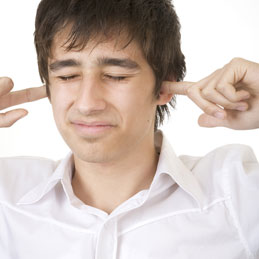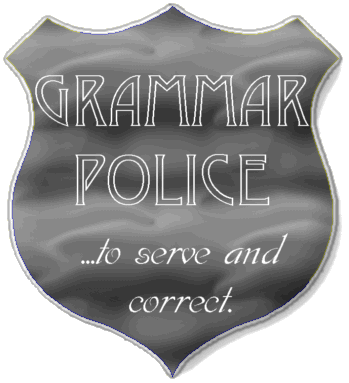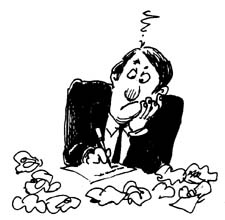 Recently I had my first three star review for Dissolution of Peace. There are many who believe that writers should avoid reading reviews of their work. Of course, as a new writer that can be tough. There is a certain quest for validity when you are first starting out. This is especially true of independent writers, those not publishing through one of the big house publishers. But you also have to have a certain level of thick skin when it comes to reading reviews. It is the same thick skin you have to develop when you get those first critiques back from beta readers. I think I am fairly good at taking a bad review or critique. I am willing to admit that my writing isn’t for everyone. I don’t think every story is for everyone. In fact, I don’t think there is one story that is for everyone. Tastes vary, and I can appreciate that.
Recently I had my first three star review for Dissolution of Peace. There are many who believe that writers should avoid reading reviews of their work. Of course, as a new writer that can be tough. There is a certain quest for validity when you are first starting out. This is especially true of independent writers, those not publishing through one of the big house publishers. But you also have to have a certain level of thick skin when it comes to reading reviews. It is the same thick skin you have to develop when you get those first critiques back from beta readers. I think I am fairly good at taking a bad review or critique. I am willing to admit that my writing isn’t for everyone. I don’t think every story is for everyone. In fact, I don’t think there is one story that is for everyone. Tastes vary, and I can appreciate that.
But there is one chink in my review armor, an Achilles heal of bad reviews, and that is grammar. Nothing makes me feel more incredibly horrible as a writer, or even as a human being, then when someone points out bad grammar. The worst part is so many people feel compelled to do so. I have a friend who doesn’t even like to read who will point out just about every grammar mistake I make on social media. My sister-in-law loves to do it as well. My wife, she can do it all the time. She especially loves to point out bad grammar in my speech. My mom even pointed out that she thought I had a bad editor, because of the mistakes she saw in my writing. I found this even more disheartening because I thought my Editor did a great job helping me polish this out. So my first thought was how horrible the original could have been without his help.
Every time someone points it out, I feel like a hack. I have an insecurity when it comes to my grammar. This includes my spelling, punctuation, and sentence structure. Really any of it gets me down. So while a three star review is decent, the text of his review got me down. Down to the point that I nearly scrapped my current novel in progress and packed up the keyboard. Nothing makes me feel more like a want-a-be writer than when I get hit with grammar points.
But like any Achilles heal, I’ve had to learn to deal with it. There are two reasons I never pursued my original dream career, one of them was a mentor of mine who repeatedly pointed out my horrible spelling skills. I don’t think she ever called them horrible, but that is what I heard. So when the second thing came along, I never bothered to overcome it because deep down I was self conscious of my ability to deal with spelling. I can’t let that become the stumbling block for my dream to write.
If it wasn’t for spell check, my spelling would be worse. But one can not rely on spell check alone. It isn’t a perfect system. Sure, I could resort to blaming others. But that really isn’t fair either. In fact, I really haven’t found a trick to dealing with this. I try my damnedest to learn everything I can about grammar, and do my best to catch it all. I hire an editor to make sure my grammar is on point. And I listen to those grammar complaints from everyone who points them out, even when it gets me beyond angry.
I also try to remember that I am not the only one. I know others that have had, or continue to have grammar difficulties. So here are some tips I use to help me deal with my Grammar Sensitivity:
 1. Not everyone knows what they are talking about.
1. Not everyone knows what they are talking about.
Frankly, many don’t know what they are talking about. There have been a lot of people to point out grammar mistakes for me to spend time looking up only to find they were the ones that are wrong. But, just because they are wrong doesn’t mean I didn’t learn a little more about grammar.
2. Learn what you can about grammar.
If you are like me, you hate learning about grammar. I don’t like it at all. But if you have the dream of being a writer, it is something you have to deal with. When someone points out a grammar mistake, look it up. And when you are not sure, look it up. There are many ways to look it up. A fellow author shared this site with me: http://grammar.quickanddirtytips.com/ It has helped me out a lot. But if grammar is your stumbling block, learning it may not be so easy. But you could also be making it harder of yourself.
3. Don’t over think grammar.
Once of the biggest draw backs to constantly studying grammar has been that I am now constantly second guessing myself. I don’t know how many articles I have read on then versus than. Yet, I still make the mistake. And 95% of the time, I make the mistake because I spent so much time over thinking the way I was using it. And spending too much time thinking over the grammar only slows down your progress on the story.
4. Grammar can be fixed
I believe I have said this before. But grammar can be fixed while the ability to tell the story generally can not. Story is much harder and sometimes impossible to fix, but changing a semicolon to a period is easy. But only if you can catch your mistakes.
5. Hire someone to catch those mistakes
Hire a grammar cop to edit your stories. If you know grammar is your weakest link, get a grammar strong editor. Get grammar strong beta readers too. And don’t restrict them from pointing out grammar issues, especially in later readings. I’ve made this mistake before. I’ve been very restrictive on grammar comments from beta readers and in the long run it only shoots me in the foot.
6. Have a safe zone.
My friends tend to make this impossible. But I used to use social media as my reprieve from grammar. That is why I have made it one of the rules on my blog that there be no Grammar policing on my site. This is my break. But, my mom still feels compelled to point it out. While there is no real safe zone from grammar cops, you can do your best to make some sort of buffer area. It is why I get so angry with my friends on social media when they get grammar crazy. It just isn’t the place for it.
7. Grammar mistakes are not a stopping point.
Grammar mistakes should not be something that stops you from realizing your dreams. I wish I understood that ten years ago. Grammar mistakes can actually be a starting point. They can be a spring board for you to learn from. You can make yourself a better writer by getting these mistakes brought to light. And then learning about them.
8. Watch out for the ones that point out grammar too much.
Yes, there can be too much grammar. Those that expect perfect grammar in dialogue for example. But it has also been my experience that many who are absolutely crazy about grammar are not exactly good with story. I know some people are going to go nuts over that comment. But it is still my firm belief that when you are writing a story, you should be obsessed with the story not the grammar. If you have people around you that drag you down over grammar, they may not be the type you want to have around. But that ones that want to build you up by helping you with grammar, those are the keepers.
Here is a trick to tell which type of person they are: It is all in how they point it out. If they point it out with a rude comment, then it is obvious they are the “drag you down” type. But sometimes it isn’t so cut and dry. The sarcastic joke, the laughing at you (even an LOL or a 😛 count as laughing at you) for your mistake, and the constant pestering of you for your grammar. Those are all signs of the “drag you down” type of person. And most of the time, the “drag you down” person is jealous of some other aspect of your writing, such as your story telling ability.
But the person who wants you to succeed will point out resources for you to learn. They will explain the grammar error to you. They will do their best to tell you how to fix it, how to learn more about that mistake, and how to keep from making it again. That is a person that wants you succeed. They are happy that you have all the talents for writing that you do have, and they want to help you make grammar another one of those talents.
 9. Once it is published, it is published.
9. Once it is published, it is published.
Don’t get me wrong. If you don’t think a work is acceptable and you are self publishing it. You can pull it down. But, if you have been following some of my other tips and tricks, you likely did all you could to make it the best possible work you could put out at the time it was published. Going back and changing something after every review that points out a mistake, will only lead to an inability to move on and progress as a writer.
10. Push on.
I mentioned above that I was ready to give up on writing over the grammar review I got. It hurt. But I also had to recognize that it is also their opinion. And, I think it is a bit exaggerated. But even if it isn’t exaggerated, the point of Amazon reviews is for a person to give their honest opinion of the product. Even if it gets all one star reviews, you have to move on. You have to move on and start on that next project. You have to keep pushing for that dream. Giving up on it now will only cause regret later. I still kick myself for giving up on my career goals. Giving up on my writing dreams will not work.
If you are going to be a writer, you will have to deal with grammar. Even worse, you will have to deal with grammar critics. If you have a sensitivity to grammar correction, like I do, you will have to learn to work around it. I hope with a few of my tips you can at least manage to keep writing.

Good post, Richard! To be honest, I think a lot of writers, especially in the more creative veins, aren’t the best editors*. There’s a left brain/right brain thing going on, and a lot of writers aren’t also grammarians. Personally, I’m learning that I’m an anomaly. And that’s not to say I’m great at story or a perfect editor—I just happen to LIKE doing both.
The key is: Every writer has strengths and weaknesses. Grammar may not be my weakness, but I definitely have other shortcomings.
Plus, grammar is a real Catch-22: people only notice the mistakes. How many book reviews have you read that said, “The grammar in this book is perfect! Well edited!”? None. It’s an anonymous work, which can be both liberating and frustrating.
*In all the books I edit, only occasionally do I find a writer with superb grammar skills, although some are better than others. (I hope I don’t sound elitist for saying such a thing; it’s not my intention. Like I said, I’m not a perfect editor.) So don’t fret! Props to you for recognizing your weakness, though, and learning what you can. I think the key is, like you said, to find people/editors who use grammar as a way to uplift your story, rather than bring its writer down.
You do bring up a great point. There is a quick reaction to bad grammar while no reaction to good grammar. Even in the Amazon reviewer who mentions it, and gave me three stars, the impression I got was that he was looking for something wrong. A reason to justify his 3 star rating. I think in many cases that is what grammar in creative story telling boils down to. An excuse for someone else to complain.
You also are right in saying that every writer has short comings. None of us are perfect. I do like being an Editor when it come to the publishing other people’s stories. But I recognize that I am not the person to be giving them advice on grammar. Which goes to show you that Editors also have there strengths and weaknesses. Which is why the best publications and publishers have a team of editors.